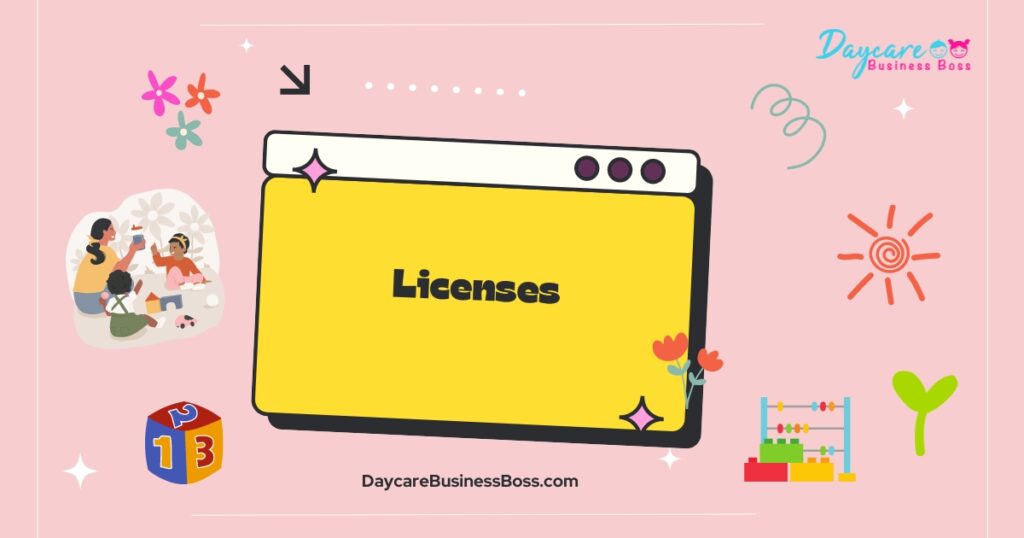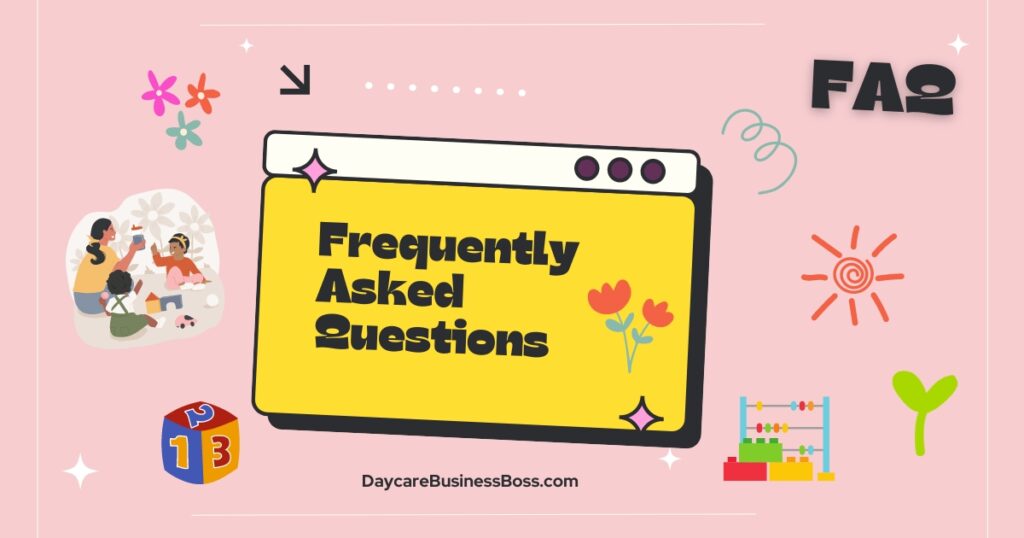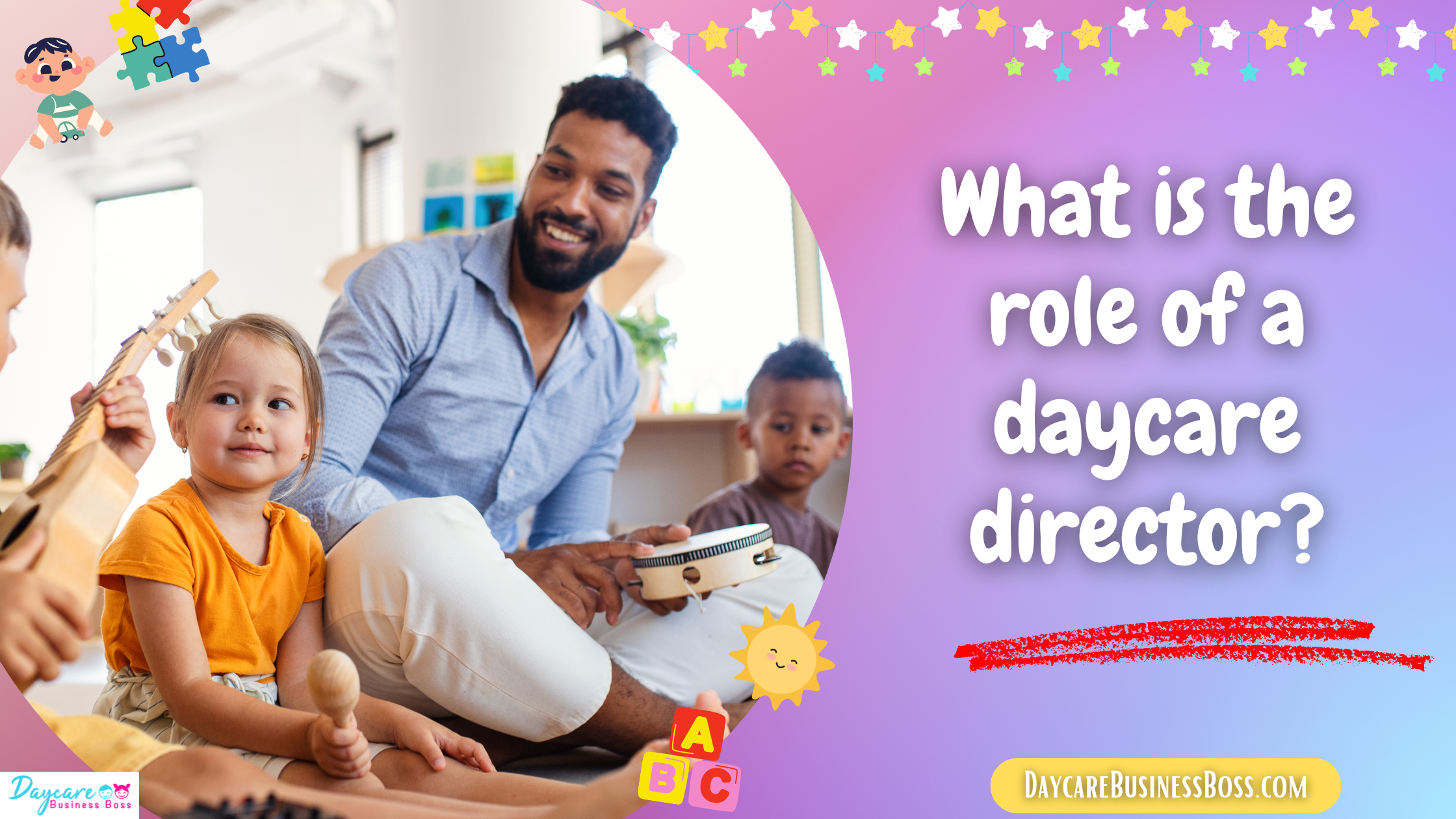A happy and safe daycare center requires more than just enthusiastic childcare workers (though they certainly play their part). Daycares need leaders that set the tone for how the daycare is run and handle the behind-the-scenes work.
The role of a daycare director is to:
• Be a leader
• Manage the day-to-day operations
• Hiring personnel
• Interacting with parents
• Stepping in where needed
Being a Leader
Being a daycare director means you have to lead kids and adults alike. You have to set up the curriculum and you often have to give your staff direction as much as you do the kids. No matter which group you’re dealing with, you’ll need to lead with confidence without being abusive. No one will respect a director who lets everyone walk all over them nor will they respect someone who mistreats them. A good leader raises their voice only as necessary and only in a constructive fashion.
A good leader is also proactive and organized. They are always looking for ways to improve things. Good leaders try to get ahead of problems or on top of them as soon as possible rather than wait for them to spiral out of control. Being proactive in a daycare operation is important because if things spiral out of control a literal mess can ensue.
Daycare directors also have to be the face of the daycare. This means being warm and welcoming to the rest of the community. Daycare operations cannot succeed without children attending and parents won’t send their children to people they don’t trust.
Management
Many of a director’s duties aren’t often seen by parents or children but are vital nonetheless. Like any other business, daycares have bills to pay and paychecks to fill out. The director’s role is to make sure those bills and checks are filled out promptly so they don’t create problems for children and staff later.
Like any business, a director has to keep track of the budget. The director must go through and see where costs can be controlled without sacrificing the quality of the daycare. They should also look for chances to invest in their daycare, be it more staff, more equipment, or some other improvement. However, they also must make sure that improvement makes financial and practical sense for the market they serve.
They also have to make sure the daycare is well-stocked with everything it needs to run for the day. These include supplies for whatever activities are going on (art supplies etc.) and necessities like food and if your daycare is geared towards babies and younger toddlers, supplies like items for diaper changes.
Directors also have to keep track of the needs of the individual children. Some kids have allergies or aversions to certain foods. Others may be physically/academically/socially ahead or behind their peers. Directors have to ensure that communication between all parties is always open so that problems can be addressed quickly. It may be good to keep files of basic information on hand so that in the event a staff member is replaced, directors can get the new staff up to speed quickly.
Licenses

Keeping licenses up to date is another duty of the director. Daycares cannot legally operate without a license so making sure it is always up to date is one of the most important jobs a director has. This means keeping track of any changes to any laws regarding daycares, doing required events like fire drills, and making sure that any potential violations of licenses are rectified as soon as possible.
In most states, inspections are done at least twice a year. They are unannounced so directors won’t be able to plan for them. However, savvy directors will do monthly inspections of their own to avert any major problems. An inspection of this nature is simple enough for a novice director to do. Look up the regulations for daycares in the area and go through the daycare with an “inspector’s eye.” This includes peeking in on classes and looking for anything that an inspector would consider a violation. After the inspection and when all the kids are home, politely announce your findings to the staff, giving them constructive feedback on where they need to improve before inspection day. If the problems are with the building, you’ll need to contact the relevant professionals as soon as possible.
If you are running a daycare as a franchise, you will have to abide by the terms of the franchise agreement and they will want to see that you passed your inspection. It is also worth noting that you can receive federal funding through Head Start but they have their own set of rules you have to follow to qualify. Remember, inspectors and regulators won’t accept ignorance of the rules as an excuse so you should study up before starting a daycare operation.
Hiring Personnel
Running a daycare takes a lot of people. To operate legally, there has to be a certain number of staff members per child. The ratio you need varies by state but you should strive to keep the ratio as low as possible. If there are too few caregivers, the needs of the children can quickly become overwhelming. However, the number of workers is not enough. The daycare director also has to hire quality staff.
The first step a daycare director takes in hiring a new worker is to get the word out. They post their needs on websites like LinkedIn, Indeed, and Monster. Some may even post the job on local job seeker groups on Facebook. A director for a standard daycare may just want the worker to have a high school diploma or GED. However, for more selective daycares like ones geared towards the upper-class or ones geared towards disabled children, directors may want more experienced workers.
What to look for
When a director is hiring childcare workers, they want to see that the worker has energy. Small children are energetic and always on the move. They like staff members who can put on a smile even when things get rough. Parents like staff who can be firm without being mean or rude.
The person needs to be energetic but also patient. Most kids in daycare have barely learned to form complete sentences yet so communication can be a challenge. Unless the child is exceptionally gifted, chances are they don’t know how social rules work yet so caregivers have to help them learn these rules, often on the fly. Staff members must also be comfortable dealing with bodily functions as most daycare centers include kids who need diapers or frequently have accidents.
Above all else, a director must conduct proper criminal background checks on employees and screen out anyone with a criminal history. Directors must be particularly on guard when it comes to sex offenders. If you get caught accidentally hiring a sex offender, that will probably make the evening news. Many daycares and other businesses geared towards children have been destroyed on the allegation that there was a sex offender on staff. Parents expect daycare directors to keep their children safe and if they can’t trust the director to do a basic background check, they will find some other daycare to go to.
Learn more about finding clients HERE.
Meeting with Parents
Talking to parents is an important role of any daycare director. Directors have to talk with parents to get them to enroll their children in a daycare. Many will have parent orientations and open house nights. Directors also keep parents informed of any concerning/troubling behaviors.
This part isn’t easy. Directors often have to deal with parents who believe their child is perfect in every way. They don’t want to hear that their kid is behind the other kids or is harming the other children or even staff. But telling parents things they don’t want to hear is important for a good director to do so the child gets the help they need early.
Sometimes, daycare directors must inform parents when a child’s issues are too much to handle and they have to dismiss them from the daycare. This can be heartbreaking for any director but the director’s first duty is the safety of every child. If one child’s behavior repeatedly endangers the safety of the others, the director must put their foot down.
Pitching In
While daycare directors often handle the behind-the-scenes work, they must also be willing to step in and join their staff, there are days when a staff member can’t show up because they are sick. Other times, a lot of kids need to use the bathroom/get changed at the same time. Since small children can’t be left unsupervised, a director will often have to step in.
Being a daycare director means you will serve many roles at the same time. It is rewarding to work but it’s not for the timid.
Related Quest

Where can I go to see the regulations for daycares in my state?
Every state posts its regulations online. Regulations for daycares sometimes vary depending on the size of the daycare. An in-home daycare that serves a few children can be different from a traditional daycare for example.
What can I do to avoid problems with parents if I have to remove their child?
Be clear and consistent about your expectations from the start. Get everything signed in writing and speak about it at the parent orientation event on the off chance that a parent doesn’t read the contract. Consistency is important because if a parent of an expelled child learns that you’re giving leniency to another child with the same behavior, there’s an outside chance of legal issues.
Please note: This blog post is for educational purposes only and does not constitute legal advice. Please consult a legal expert to address your specific needs.
To learn more on how to start your own daycare checkout my startup course and documents here.

Meet Shawn Chun: Entrepreneur and Childcare Business Fan.
I’m a happy individual who happens to be an entrepreneur. I have owned several types of businesses in my life from a coffee shop to an import and export business to an online review business plus a few more and now I create online daycare business resources for those interested in starting new ventures. It’s demanding work but I love it. I do it for those passionate about their business and their goals. That’s why when I meet a childcare business owner, I see myself. I know how hard the struggle is to retain clients, find good employees and keep the business growing all while trying to stay competitive.
That’s why I created Daycare Business Boss: I want to help childcare business owners like you build a thriving business that brings you endless joy and supports your ideal lifestyle.

